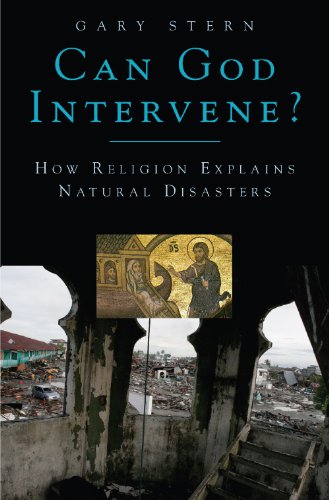

Most ebook files are in PDF format, so you can easily read them using various software such as Foxit Reader or directly on the Google Chrome browser.
Some ebook files are released by publishers in other formats such as .awz, .mobi, .epub, .fb2, etc. You may need to install specific software to read these formats on mobile/PC, such as Calibre.
Please read the tutorial at this link: https://ebookbell.com/faq
We offer FREE conversion to the popular formats you request; however, this may take some time. Therefore, right after payment, please email us, and we will try to provide the service as quickly as possible.
For some exceptional file formats or broken links (if any), please refrain from opening any disputes. Instead, email us first, and we will try to assist within a maximum of 6 hours.
EbookBell Team

4.1
10 reviewsThe death and devastation wrought by the tsunami in South Asia, Hurricane Katrina in the Gulf states, the earthquake in Pakistan, the mudslides in the Philippines, the tornadoes in the American Midwest, another earthquake in Indonesia-these are only the most recent acts of God to cause people of faith to question God's role in the physical universe. Volcanic eruptions, wildfires, epidemics, floods, blizzards, droughts, hailstorms, and famines can all raise the same questions: Can God intervene in natural events to prevent death, injury, sickness, and suffering? If so, why does God not act? If not, is God truly the All-Loving, All-Powerful, and All-Present Being that many religions proclaim? Grappling with such questions has always been an essential component of religion, and different faiths have arrived at wildly different answers.
To explore various religious explanations of the tragedies inflicted by nature, author Gary Stern has interviewed 43 prominent religious leaders across the religious spectrum, among them Rabbi Harold Kushner, author of When Bad Things Happen to Good People ; Father Benedict Groeschel, author of Arise from Darkness ; The Rev. James Rowe Adams, founder of the Center for Progressive Christianity; Kenneth R. Samples, vice president of Reason to Believe; Dr. James Cone, the legendary African American theologian; Tony Campolo, founder of the Evangelical Association for the Promotion of Education; Dr. Sayyid Syeed, general secretary of the Islamic Society of North America; Imam Yahya Hendi, the first Muslim chaplain at Georgetown University; Dr. Arvind Sharma, one of the world's leading Hindu scholars; Robert A. F. Thurman, the first American to be ordained a Tibetan Buddhist monk; David Silverman, the national spokesman for American Atheists; and others—rabbis, priests, imams, monks, storefront ministers, itinerant holy people, professors, and chaplains—Jews, Roman Catholics, mainline Protestants, evangelical Christians, Muslims, Hindus, Buddhists, and Atheists-people of belief, and people of nonbelief, too.
Stern asked each of them probing questions about what their religion teaches and what their faith professes regarding the presence of tragedy. Some feel that the forces of nature are simply impersonal, and some believe that God is omniscient but not omnipotent. Some claim that nature is ultimately destructive because of Original Sin, some assert that the victims of natural disasters are sinners who deserve to die, and some explain that natural disasters are the result of individual and collective karma. Still others profess that God causes suffering in order to test and purify the victims. Stern, an award-winning religion journalist, has extensive experience in this type of analytical journalism. The result is a work that probes and challenges real people's beliefs about a subject that, unfortunately, touches everyone's life.